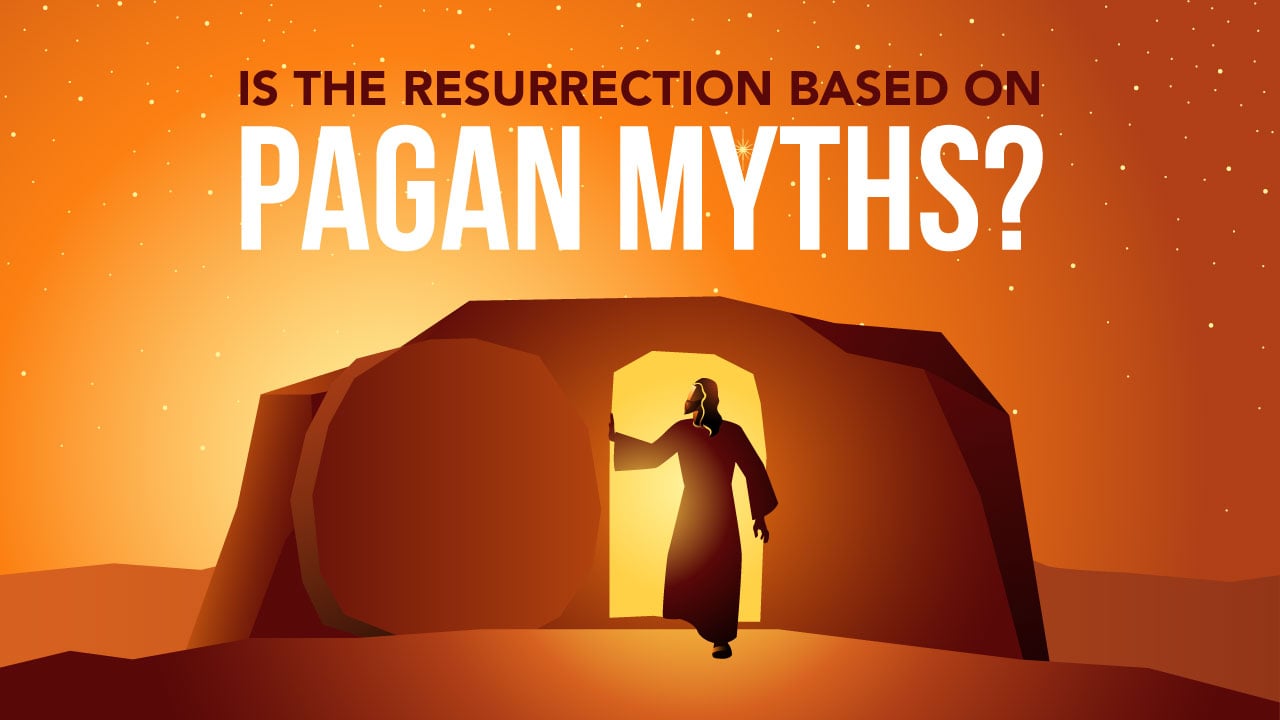You’re in a conversation and someone says, “No one even knows if Jesus actually existed."
What would you say?
While some skeptics on the internet often contend that Jesus never existed, no serious scholar does. In fact, virtually every scholar of history, including those who aren’t Christians, believe that Jesus of Nazareth existed and that he lived in the first century. The next time someone says they don’t think we can be confident that Jesus ever existed, this video highlights three things to consider.
Thank you to Dr. Michael Licona for his contributions to this video.
You’re in a conversation and someone says, “No one even knows if Jesus even existed."
What would you say?
While some skeptics on the internet often contend that Jesus never existed, no serious scholar does. In fact, virtually every scholar of history, including those who aren’t Christians, believe that Jesus of Nazareth existed and that he lived in the first century.
The next time someone says they don’t think we can be confident that Jesus ever existed, here are 3 things to remember:
Number 1: Several non-Christian historians of that period mention Jesus.
Josephus was a Jewish historian who had grown up in Jerusalem in the first century, the same city where Jesus was reported to have been crucified. Josephus’ father was a Jewish priest who would have been a contemporary of Jesus, and almost certainly would have seen him if he had existed. Josephus mentions Jesus on two occasions in his History of the Jews: in one he reports his crucifixion at the demand of the Jewish leaders and in the other, he mentions the execution of James, the brother of Jesus who is called Messiah. Josephus would have known Jesus was a historical person and would have no reason to invent him if he didn’t. Other non-Christian historians also mention Jesus, including the Roman historian Tacitus, the Greek satirist Lucian, and a prisoner named Mara bar Serapion.
Number 2: The apostle Paul, someone who persecuted the Christian Church, would have been a contemporary of Jesus and claims to have known Jesus’ brother James.
It is very unlikely that Paul would have given his life to a movement he had once persecuted if it had been based on a fictitious man who had supposedly traveled and preached in the same area in which Paul lived. Jesus would have been publicly crucified at a time and location where and when Paul would have been present, in response to demands made by Jewish authorities whom Paul would have known. Paul claimed to personally know Jesus’ brother James. Fictitious people tend not to have brothers who are personally known.
Number 3: Most contemporary scholars think that at least some of the Gospels are closely rooted in the eyewitness testimony of Jesus’ disciples.
Although modern scholars differ in their opinions about the historical accuracy of the Gospels, most think the Gospels of Mark and John are closely based on eyewitness testimony of two of Jesus’ disciples, who had traveled with him. It would have been easier to invent the existence of a mythical person that supposedly lived centuries prior to writing about them. It’s much harder to invent a person that supposedly existed within the memory of living eyewitnesses. The accounts of Jesus are eyewitness accounts.
So the next time you’re talking about Jesus and someone says “I don’t think we can be sure that Jesus existed,” remember these 3 things:
Number 1: Several non-Christian historians of that period mention Jesus.
Number 2: The apostle Paul who had persecuted the Christian Church was a contemporary of Jesus and knew Jesus’ brother James.
Number 3: Most contemporary scholars think that at least some of the Gospels are closely rooted in the eyewitness testimony of Jesus’ disciples.
Thank you to Dr. Michael Licona for his contributions to this video.Sources:
Josephus, Ant. 18:63; 20:200
Tacitus, Annals 15.44
Lucian, Passing of Peregrinus, 11
Mara bar Serapion, British Museum Syriac MS Additional 14,658



 Colson Center
Colson Center


